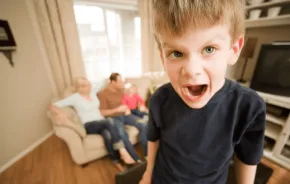
“The King of Staten Island,” Judd Apatow’s new film starring Pete Davidson, Marisa Tomei and Bill Burr, was released digitally via video on demand on June 12. Davidson lost his dad, a New York City firefighter who died in the World Trade Center on 9/11, when he was 7 years old. He co-wrote the script with Apatow, and he says in an interview that the movie is 75 percent autobiographical.
Davidson’s character, Scott, also lost his firefighter dad at age 7. When we meet the adult Scott, he's 24 and living in his widowed mom's basement. And he's struggling.
In fact, you could say that the movie is a portrait of a family struggling with unresolved grief.
I noticed three common aspects of childhood grief that are portrayed in the movie. These ring true based on my experiences as a widowed parent, and those of many people I’ve spoken with in subsequent years as host of The Widowed Parent Podcast.
Kids who have lost a parent often struggle navigating relationships with peers
When the movie begins, Scott and his buddies are hanging out in his basement. His friend makes a joke:
Knock knock.
Who’s there?
Not your dad — he’s dead!
Scott laughs and claims to believe that this is hilarious, that he’s totally okay with his buddies joking about his dad’s death.
If you study his face, it’s pretty easy to read between the lines. He’s not.
Kids who lose a parent report that interactions with friends and classmates can be difficult. Often, kids mean well, but just don’t know what to say. You can’t really blame them — adults in our culture aren’t really comfortable talking about death, so how can we expect children to be any different?
Kids will go to great lengths to avoid saying anything at all to the kid with the dead parent. Or they will avoid mentioning their own dads if they are around a friend whose dad has died — and then when they inevitably forget, they suddenly clam up. The situation gets really awkward, really fast. Or they complain about their own parents, leaving the grieving child to think: At least you have a mom to nag you about picking up your room!
Sometimes people will stumble into the topic unintentionally. A new friend — or a new friend’s parent — may ask:
What do your parents do?
Is your dad picking you up after practice?
Have your mom call me about the birthday party.
If you are the parent of a grieving child, it’s a good idea to talk through potentially awkward situations that might arise, and come up with simple responses for your child to have at the ready. And if your child has a friend who has lost a parent, you should assume they will need some help figuring out how to be comfortable around them. Talk it over, hear their concerns and brainstorm solutions.
Multiple kids in a family means multiple experiences of grief
Davidson’s character has a younger sister who was a baby when their dad died. In one scene, when she is preparing to leave for college, the siblings argue about who had a harder time dealing with their dad’s death.
Scott feels that his sister is the lucky one, because she was so young that she didn’t know their dad — and therefore doesn’t know what she missed. She, on the other hand, feels that he is the lucky one because he was old enough to retain some memories of their dad and have pictures to look back on.
She also feels overlooked. At one point, Scott asks when he is ever going to get a break. His sister’s answer?
Are you kidding? Everything is always about your issues. I was neglected growing up.
It’s easy to assume that all kids in a family have similar needs and similar experiences processing grief. After all, they all lost the same person, lived through the same circumstances surrounding the death and attended the same funeral.
There are many reasons this is not true. The ages of the kids, their personalities, the relationship they had with the deceased parent and the relationship they have with their surviving parent are just a few.
It’s important for adults to understand this and consider individually what each grieving child needs. It’s okay, for example, if one kid wants to go to the cemetery on Father’s Day and the other wants to stay home. It’s okay if one wants to eat their loved one’s favorite food or watch their favorite movie — and the other doesn’t.
This can make it hard for parents logistically, but it’s worth the effort to discuss it and to make plans that work for everyone. This may mean you mark a special day differently with each child — there’s no rule that the whole family has to do the same thing.
New partners of widowed parents are not replacement parents
Scott’s mom, played by Marisa Tomei, has not dated anyone in the 17 years since her husband died. Midway through the movie, she begins dating another firefighter (played by Bill Burr). Scott is not pleased with this development, and erupts at his mom. At one point, he asks if she’s planning to build a second shrine in another corner of the living room so she can remember both of her dead husbands when this one inevitably dies, too.
Scott’s trouble really begins, however, when his mom and her new boyfriend sit him down at the kitchen table and tell him he needs to move out. He’s 24, and it’s clear he has no direction or motivation to really “grow up” — but it’s also clear that the move-out ultimatum is not really his mom’s idea.
She initiates the discussion, but pretty soon her boyfriend takes over, excoriating him for being lazy and selfish and for not taking responsibility for his own life. These things may be true, but it’s not the boyfriend’s place to “parent” Scott like this.
It’s important for step-parents and other new partners of widowed parents to let the actual parent do the parenting, particularly in the early years when new family relationships are still being established. They should not try to replace the deceased parent. They can and should take on the role of another caring, loving adult in the life of a grieving child, and let the parent take the lead on the big issues of parenting.
It’s much easier to support a grieving child than it is to heal a broken adult.
“The King of Staten Island” reminds me why I started The Widowed Parent Podcast: It's so hard for widowed parents to know what to do — how to help their kids and themselves — after their spouse dies. This is why it’s so important to seek out support and resources that can help.
As Vicki Jay, CEO of the National Alliance for Grieving Children, said when I interviewed her: "It’s my belief that the earlier we can provide support for anybody who’s had a loss, then the healthier adult that person is. It’s much easier to support a grieving child than it is to heal a broken adult."
If you are looking for children’s or family grief support, see this list of programs in every U.S. state, compiled by the National Alliance for Grieving Children. Many grief centers are offering virtual programming right now, and some are open to participants regardless of location. It’s worth the effort to find support sooner rather than later, so that your kids can begin the task of integrating their loss into their lives and figuring out how to move forward in a healthy way.
Watch “The King of Staten Island” on Amazon Prime.











